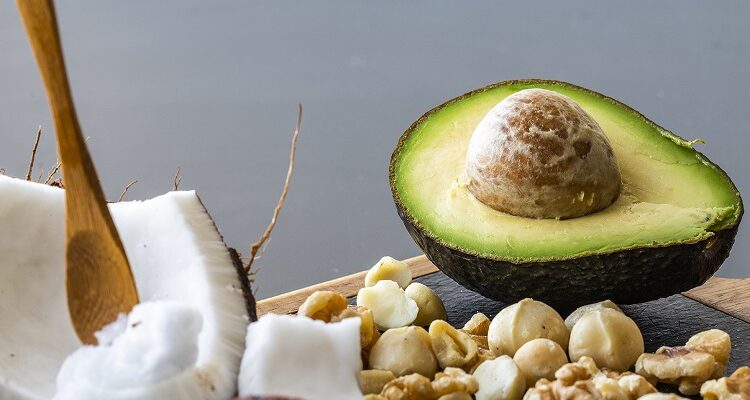This post looks at the ways to ensure a balanced range of healthy fats and oils within a vegetarian lifestyle.
When it comes to healthy fats, most of us will have heard about omega-3 and its health benefits. This, it turns out, is an especially important subject for vegetarians, but all too often ends up a source of confusion and misunderstanding. Let’s take this opportunity to clear things up.
When we talk about the health benefits of omega-3, we are talking about omega-3 fats, which are known as EPA and DHA. These omega-3’s have impressive benefits for cardiovascular health, the brain and how it functions, and controlling inflammation in the body. Plants do produce a type of omega-3 called alpha-linolenic acid, which is especially found in flaxseeds/flaxseed oil, hempseed oil, rapeseed oil, and foods such as walnuts and soya.
But here’s the rub. Alpha-linolenic acid, the plant version of omega-3, lacks the potent health-giving properties of EPA and DHA. In theory, the body can convert alpha-linolenic acid to EPA and DHA, but the truth is, that process just isn’t very efficient in humans.
So, what if you want to eat solely plant-based sources of omega-3? As well as increasing healthy sources of omega-3 fats (like those listed below) it would be advisable to reduce the consumption of omega-6 fats (known as linoleic acid), as these omega-6 fats reduce the body’s ability to turn alpha-linolenic acid into EPA and DHA. That means cutting back on omega-6 sources like sunflower oil/spreads (however sunflower seeds are fine! They bring many other highly beneficial nutrients – fiber, vitamins, minerals, phytonutrients, etc), corn oil, safflower oil, and grapeseed oil. Instead, of omega-6 fats, place a greater emphasis on consuming omega-9 monounsaturated fats, as found in extra virgin olive oil, rapeseed oil, nuts, and avocado.
Another solution to the omega-3 issue for vegetarians is to top up with algae-based omega 3 supplements which are increasingly available. This has the advantage of providing the body with preformed DHA (which the body can also turn into EPA).
Good vegetarian sources of omega-3
- Flaxseeds/flaxseeds oil
- Hempseed oil
- Rapeseed oil
- Walnuts
- Soya
- Green leafy vegetables
DHA-enriched micro-algae supplements
- Extra virgin olive oil
- Rapeseed oil
- Nuts
- Avocado
You will notice there are many of the top 20 Sirtfoods mentioned here.


Comments